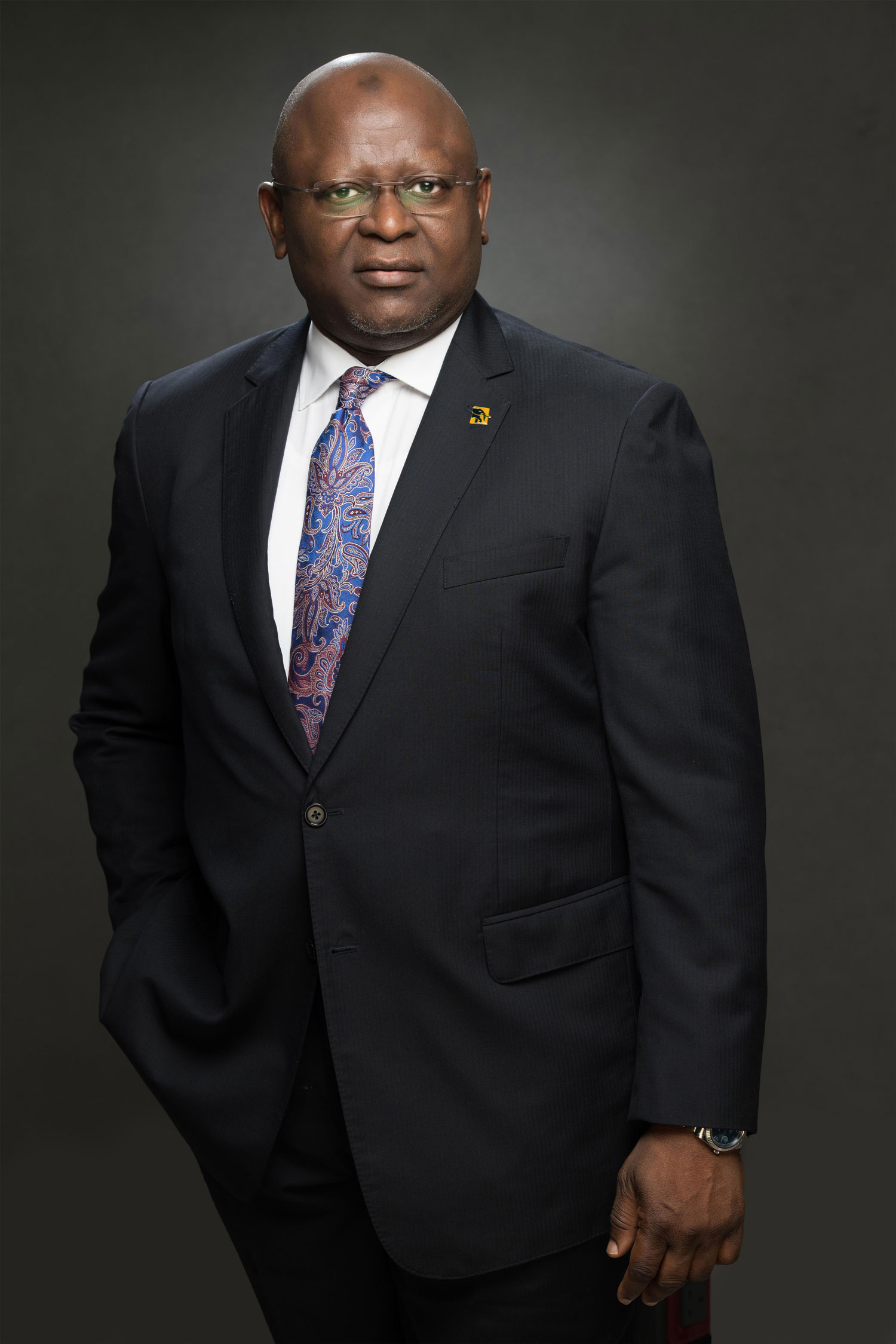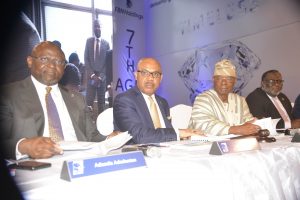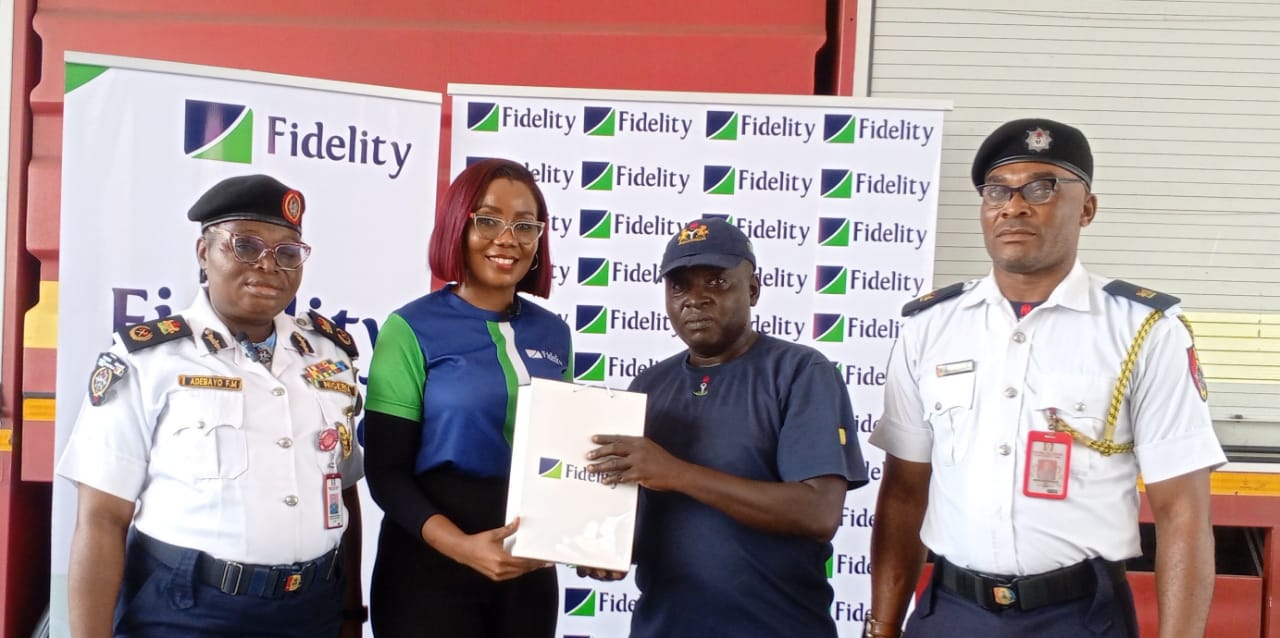Business
FirstBank: Standing Strong on the Enviable Heritage of Firsts

By Eric Elezuo
It is often said that the child that would be great begins very early to manifest the traits, and in doing so, takes along the entire community, who are awed by his acts. These are acts that are tested, and trusted to last ages. This is the story of FirstBank of Nigeria Plc; a financially oriented company that manifested the traits of glory, customer satisfaction and all round first from birth, and has not looked back ever since.
In March 1894, in the quiet corner of Broad Street, Lagos, the brand was conceived and given birth to for the public gain. It was the first of its kind in the country, and deservedly got the best name appropriate – FirstBank.
FirstBank as the oldest bank in Nigeria, spanning 125 years and still counting, has grown in leaps and bounds, creating new frontiers, breaking barriers, constantly coming up with diverse firsts, bringing smiles to families with its cut to size promos and products as well as forging an enviable image for the Nigerian nation, both from within and across the globe.
As the premier and leading banking institution, not only in Nigeria, but the entire West African sub-region, FirstBank has fully revolutionalised the banking business, developing tip of finger-like ease of doing business and accessing funds. Consequently, the bank manages with ease over 15 million customer accounts in well over 750 business locations globally from where it provides a comprehensive range of retail and corporate financial services. The customers are also availed of the more than 2700 Automated Teller Machines (ATMs) across the banks and other locations.
Among the very many firsts the bank is endowed with is the launch in 2011 of the first cash deposit ATM in Nigeria thereby granting customers the pleasure of depositing cash without entering the banking hall. This service has helped in reducing the handling of cash and supporting the Federal Government cashless policy.

The Chief Executive Officer, FirstBank, Dr. Adesola Adeduntan; Group Managing Director, FBN Holdings Plc., Mr. UK Eke; Group Chairman, FBN Holdings Plc., Dr. Oba Otudeko, CFR and Company Secretary, FBN Holdings Plc. Mr. Seye Kosoko, at the 7th Annual General Meeting of FBN Holdings Plc held in Lagos.
With its XploreFirst promo, FirstBank has also regenerated banking and savings culture in the day-to-day activities of many customers, especially the students who are rewarded with potent scholarships. Recently, about 18 students were rewarded with N150, 000 scholarship each. This, the bank has used in promoting financial inclusion at all levels with about 18, 000 agent banking spread across the country. That’s quite a huge statement in putting the customer first as the slogan goes – You First!
Little wonder, in the tradition of firsts, the company performed a historical flag hoisting on March 1, 2019 to mark its 125 years in existence. If FirstBank had been a Dutch oriented company, it would have been dubbed Royal FirstBank, having hit the 100 years mark.
Talking about firsts, FirstBank is among the first banks (no pun intended) in the country to launch whatsapp banking as an alternative channel to ease banking stress. This is in addition to firstmobile, FirstMonie and firstonline, which have proved to be veritable tools to making banking more like a past time, accessible from almost anywhere. With its *894# code, FirstBank has reduced banking to mere touch of buttons.
FirstBank’s innovations and consistency has earned it recognitions from far and wide, chiefly among it is being named “Most Valuable Bank Brand in Nigeria” for six consecutive times between 2011 and 2016 by the globally renowned “The Banker Magazine” of the Financial Times Group.
Again, between 2011 and 2017, the bank was recognized as the “Best Retail Bank in Nigeria”. The honour was bestowed by the Asian Banker International Excellence in the category of Retail Financial Services. And for 15 years in a row, it won the “Best Bank in Nigeria”, an award sponsored by Global Finance.

In the words of the Group Head, Marketing & Corporate Communications, Mrs. Folake Ani-Mumuney “Our brand purpose is to always put customers, partners and stakeholders at the heart of our business, even as we standardise customer experience and excellence in financial solutions across sub-Saharan Africa, in consonance with our brand vision “To be the partner of first choice in building your future”. Our brand promise is to always deliver the ultimate “gold standard” of value and excellence. This commitment is anchored on our inherent values of passion, partnership and people, to position You First in every respect.”
Lending credence to the heritage of firsts of FirstBank, the Group CEO, Dr, Adesola Adeduntan said that “it is one of the ways FirstBank puts you first and enables you to stay connected with your contacts, loved ones, friends and finances all on the go while you chat with them because at FirstBank, we are driven to bolster relationships on all fronts, anywhere and anytime.”
A global bank by all standard, FirstBank is the second bank in Africa, and by all means the first in Nigeria to issue 10 million cards, in addition to being recognized as the first financial institution in Nigeria to achieve 100 million sustained monthly transactions in electronic payment, by Interswitch. This feat was achieved in December 2015 and again in May 2016.
The many firsts of FirstBank cannot be over-emphasized as in 2008, against all odds, it became the first Nigerian Bank as well as the first quoted company in the country to hit N2 trillion market capitalization.
It is worthy of note that over the years, FirstBank has led the financing of private investment in infrastructure development in the Nigerian economy by playing key roles in the Federal Government’s privatisation and commercialisation schemes.
To serve the customers better, the bank has international presence through its subsidiaries, FBN Bank (UK) Limited in London and Paris, FBNBank in the Republic of Congo, Ghana, The Gambia, Guinea, Sierra-Leone and Senegal, as well as a Representative Office in Beijing.
With its global reach, FirstBank provides prospective investors wishing to explore the vast business opportunities that are available in Nigeria, an internationally competitive world-class brand and a credible financial partner.
For 125 years, FirstBank has consistently built relationships with customers focusing on the fundamentals of good corporate governance, strong liquidity, optimised risk management and leadership.
The FirstBank Group is endowed with a rich blend first class human and material resources, which have helped in furthering the principle of placing the customer first ahead of every other thing. At the helm of affairs of FirstBank is Dr. Adesola Adeduntan, who is the Managing Director/CEO. The chairman of the group’s Board of Directors is Mrs. Ibukun Awosika while Oba Otudeko is the chairman, FBN Holdings.
Where would you rather bank? FirstBank…You First!
Business
FirstBank Launches 500-Seater Bleacher at Carnival Calabar & Festival 2025

West Africa’s premier financial institution and financial inclusion services provider, FirstBank, has officially announced its sponsorship of the Carnival Calabar & Festival 2025, unveiling a landmark addition set to redefine the carnival experience — the first-ever private premium seating area at the event.
The highlight of FirstBank’s participation is the construction of a 500-seater premium bleacher, designed to provide comfort, safety, and an elevated viewing experience for carnival enthusiasts.
Speaking on the sponsorship, the Acting Group Head Marketing and Corporate Communications, FirstBank, Olayinka Ijabiyi, noted that the carnival aligns with the Bank’s First@Arts initiative, a platform dedicated to supporting the creative arts value chain across Nigeria. He said, “We recognise the transformative power of the arts, including carnivals, in inspiring people and strengthening national unity. For more than 131 years, we have supported platforms that promote self-expression, social reflection and cultural exchange. Our investment in the Carnival Calabar & Festival demonstrates our commitment to preserving the nation’s rich cultural heritage through First@Arts.”
“As part of our sponsorship this year, we are introducing the first-ever private 500-seater premium bleacher to further elevate the carnival experience. This exclusive seating is designed to provide exceptional comfort and an unforgettable viewing experience for attendees,” Ijabiyi added.
The Chairman of the Cross River State Carnival Calabar Commission, Gabe Onah, also commented on FirstBank’s sponsorship. “FirstBank’s involvement is a strong demonstration of private-sector support for culture and tourism. This partnership not only enhances the overall quality of the carnival but also strengthens its global appeal,” he said.
The Carnival Calabar & Festival 2025 is officially marketed by Okhma Global Limited, the appointed Official Marketer responsible for brand partnerships, promotional engagements, and ticket sales. Okhma Global Limited has partnered with the Cross River State government in delivering Carnival Calabar & Festival for over ten years, playing a key role in strengthening the carnival’s commercial growth and global visibility.
Business
Yuletide: Ecobank Urges Vigilance, Guarantees Seamless Banking

Ecobank Nigeria, a member of Africa’s leading pan-African banking group, has assured customers of uninterrupted access to banking services throughout the year-end holiday period via its secure and robust digital platforms. The Bank also urged customers to remain vigilant against fraud and scams during the festive season.
Speaking on the development, Victor Yalokwu, Head, Products & Analytics, Consumer & Commercial Banking, Ecobank Nigeria, said the Bank’s digital channels — including the Ecobank Mobile App, Ecobank Business App, USSD *326#, Ecobank Online, OmniPlus, Omnilite, EcobankPay, RapidTransfer, Ecobank Cards, ATMs, PoS terminals, and over 35,000 Ecobank Xpress Point (Agent Banking) locations nationwide — will remain fully available to support customers throughout the yuletide and year-end holiday period.
He noted that customers will continue to enjoy a wide range of services during the period, including local and international funds transfers, bill payments and airtime top-ups, merchant payments, balance inquiries and account statements, as well as cardless cash withdrawals via ATMs.
According to Yalokwu, “Ecobank encourages customers to leverage these digital solutions for safe, fast, and efficient banking, especially during the festive season when convenience and reliability are essential. While physical branch operations may be subject to adjusted working hours in line with public holidays, customers can be assured that Ecobank’s digital platforms are designed to deliver uninterrupted service and enhanced security at all times. Ecobank remains committed to providing innovative financial solutions and exceptional customer service, and we wish all our customers a joyful festive season and a prosperous New Year.”
Yalokwu also cautioned customers to remain vigilant against fraudsters and scammers during the period. “Before you wrap up the year, tighten your security. December brings online sales, travel, and year-end distractions—this is exactly when scammers are most active. From fake festive deals to cloned merchant sites and suspicious messages, staying vigilant helps keep your money safe.”
He advised customers to shop only on trusted websites, never share their PINs, passwords, or one-time passwords (OTPs), avoid banking on public Wi-Fi networks, be cautious of urgent or emotionally charged messages, and regularly review their account activity.
Business
Fidelity Bank Donates Hoses, Water Pumps to Fire Service

Fidelity Bank Plc has donated firefighting and preventive equipment, including hoses and gasoline-powered water pumps, to the Ikoyi Fire Service Station in Lagos, reinforcing efforts to improve emergency response and promote community safety.
The donation was executed under the Fidelity Helping Hands Programme (FHHP) by the bank’s True Serve team. Through the initiative, Fidelity Bank employees identify critical community needs, raise funds, and receive matching financial support from the bank to implement impact-driven projects.
Speaking on the initiative, Divisional Head, Brand and Communications Division at Fidelity Bank, Dr Meksley Nwagboh, said the intervention reflects the bank’s commitment to public safety, environmental protection, and sustainable community development.
“Community safety is a shared responsibility. Fidelity Bank remains committed to supporting initiatives that protect lives, property, and the environment,” Nwagboh said, adding that preventive measures remain more effective than emergency responses.
He noted that providing the right tools to first responders aligns with the bank’s broader goal of enabling people to live safe, meaningful, and empowered lives.
Lagos State Controller of the Federal Fire Service, Controller of Fire (CF) Funke Adebayo, commended Fidelity Bank for the timely support, particularly as the festive season approaches amid dry weather conditions that heighten fire risks.
She urged residents to remain vigilant and warned parents against allowing children to handle fireworks during celebrations, stressing that careless handling of fire could lead to avoidable disasters.
Adebayo also disclosed that the Fire Service has intensified sensitisation visits to corporate organisations to promote fire safety and discourage unsafe practices.
Also speaking, Area Commander, Onikan Fire Station, Chief Superintendent of Fire (CSF) Oswere Michael, expressed appreciation for the donation, noting that it would strengthen the station’s operational capacity.
He encouraged households, businesses, and community members to prioritise fire safety, describing collective responsibility as critical to preventing fire outbreaks.
Fidelity Bank Plc is a full-fledged commercial deposit money bank serving over 9.1 million customers through its digital platforms, 255 business offices across Nigeria, and its UK subsidiary, FidBank UK Limited. The bank has received multiple local and international awards in recognition of its performance in digital transformation, MSME banking, and innovative financial services.
Photo – L-R: Lagos State Controller, Federal Fire Service, CF (Controller of Fire), Adebayo Funke; Tolulope Rojaiye, Marketing Business Partner, Fidelity Bank Plc; Assistant Superintendent of Fire, Ishola Folorunsho Olufemi; and Station Commander, Onikan Fire Station, Lagos, Okeke Ferdinand; during the donation of firefighting equipment to the Federal Fire Service at Ikoyi, Lagos, recently.






